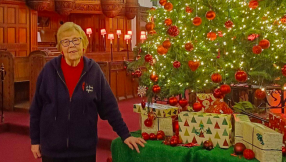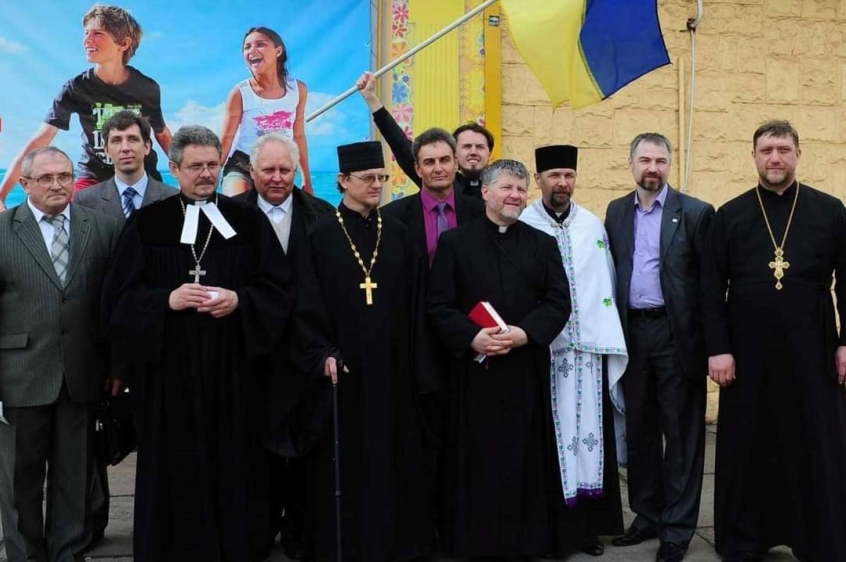
"At this moment we see a lot of bombs that do not explode," says Victor Punin, a pastor based in Kyiv.
"We have a lot of testimonies of people being led out of danger shortly before an attack. Also, very heartening, many people in the Ukrainian army are asking for prayer."
Despite the brutal conflict raging in his country, Victor and his congregation are praying with a clear expectation that their prayers will be answered.
"Today we, we prayed at 12 noon with all denominations," says Victor.
"It was announced the whole of Ukraine would pray together, although it's hard to meet in person."
As his friend, Pastor Keith Daniel puts it: "The Ukrainian church is a praying church."
It is clear, listening to their stories, that this is also a serving church, a mission-focused church and more. And it is a church that, crucially, has been matured and refined over several years.
Pastor Keith remembers the first time he went to Ukraine, as a missionary in 1999 – a few years after the fall of the Iron Curtain. It was an exciting time, he says.
"In the nineties there was church planting all over the place. It was almost a revival.
"There was a lot of foreign input and a lot of good was done. With all these new church plants, a lot of young pastors were still learning the ropes."
A maturing church
However, Keith, based in the central Ukrainian city of Kryvyi Rih, does not look back on the turn of the millennium as a golden age for the church in Ukraine. When he returned in 2010 to lead the discipleship organisation Kingfisher Mobilising Centre there, he was amazed by the transformation churches had undergone.
"I found the Ukrainian church had matured in so many ways," he says. "Churches are now active in missions."
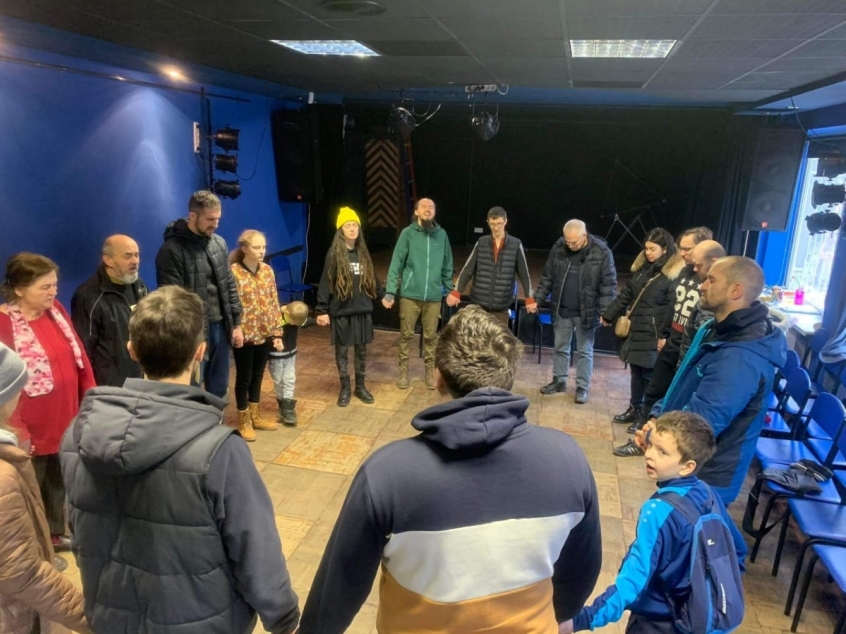
It is a maturity that has stood Ukraine's churches in good stead as the darkness of conflict descends on their country once again.
And it sees many churches across Ukraine ready to play a critical humanitarian and spiritual role during the current crisis.
"Our people have travelled across the country to help," says Victor.
"They do different things: in Kiev they are helping people in bomb shelters and people who are alone in apartments – encouraging them and bringing food, all kind of needs. Many are helping refugees to get across the border."
"The Lord is breaking these barriers down, and it's a beautiful thing"
It's easy to miss the significance of the words "all denominations" that Victor uses when he talks about their prayer meetings. When the Iron Curtain first came down in 1990 and new churches started being planted, there was a distinct lack of unity in many parts of the Christian church.
"The charismatic evangelicals were mostly seen by the Orthodox as like a cult and thought of them as weird people," remembers Keith.
There was also mistrust between established Pentecostals and newly planted charismatic churches. However, all that has changed – and it was another crisis that precipitated the biggest shift in attitudes.
"Evangelicals were always slightly in the shadow of the Orthodox Churches," he says. "But since the war started in the Donbas region in 2014, they have come to the fore, because they're so active helping in the community. And people started to say, 'wow, these guys really are true Christians!' The Lord is breaking these denominational barriers down, and it's a beautiful thing.
"There is a respect now for each other. In our city they've been having regular meetings, eating together, and praying together. We have started to see each other's hearts.
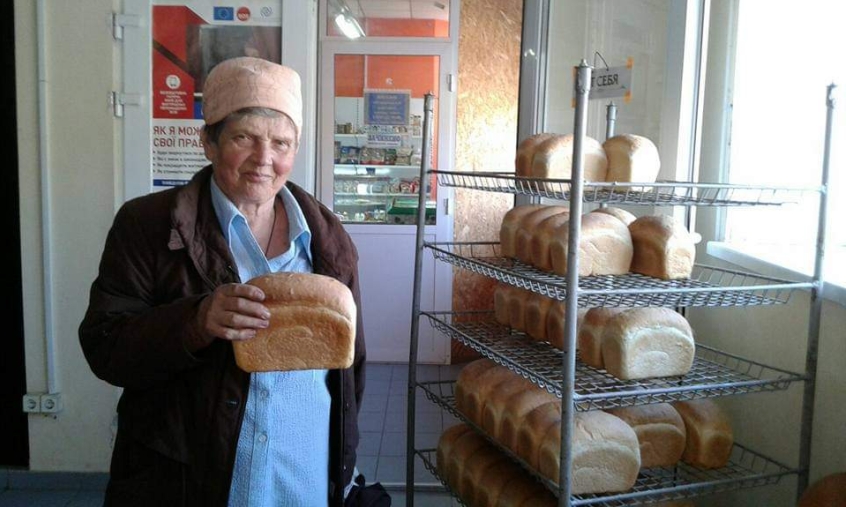
"Right now, all denominational differences have collapsed," agrees Victor. "Every Christian is praying with the same attitude."
Everything's changed
The coordinated acts of prayer and service are more impressive when you consider how hard it is for churches to keep functioning in the current chaotic circumstances.
"We cannot conduct any Sunday meetings and we can't afford to pay our staff," says Victor.
"So, the whole church administration has collapsed. And many of our congregation have chosen to flee Kyiv or even Ukraine. The church, as an administration, is not working now, but as a relational body, we still are.
"Every morning we contact every single person in the church, asking where they are, are they safe, is everything okay? We focus on serving one another and encouraging one another. So right now, 11 people are staying in our house, just for shelter."
Keith says he saw a step change in the Ukrainian church's commitment to serving their communities during the Russian invasion of the Donetsk region in 2014. He cites a church project he saw start in a small town near Donetsk, called Mar'inka.
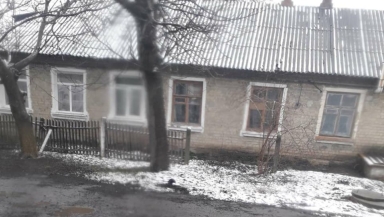
"In the peak of the war that time, there was a bakery that provided for the region, but it was bombed. These church brothers got funds from all over Europe, and they rented a building, opened a bakery, and hired the staff from the bakery that was destroyed. And it became a hub for the whole community. They have a second floor where they meet as a church. They didn't make it denominational; it's open for everyone."
With media footage of civilians arming themselves with guns and Molotov cocktails, I asked Victor how Christians felt about engaging in violent resistance. While many civilians are arming themselves, he tells me that most Christians he knows are avoiding any violent confrontation.
"I would say most Christians would not like to pick up a weapon or kill others. They would rather leave Ukraine altogether."
I ask Victor how his remaining congregation are feeling.
"That's another miracle from my side; there's a peace and calmness of people I am in contact with. I've seen so much stability in the church people and so much willingness, just to do something.
"Of course, you will always have those people who would rather save their lives first. But I have been surprised how many people have been ready to really sacrifice something for others."
For Keith, the church in Ukraine has undergone a beautiful metamorphosis from when he first set foot in the country just before the turn of the millennium.
"It's a really mature church. They are self-supporting and self-propagating. I think the Ukraine church could teach our churches in the West a lot of things."
Ben Cohen is Head of Media and PR for Open Doors UK and Ireland.













